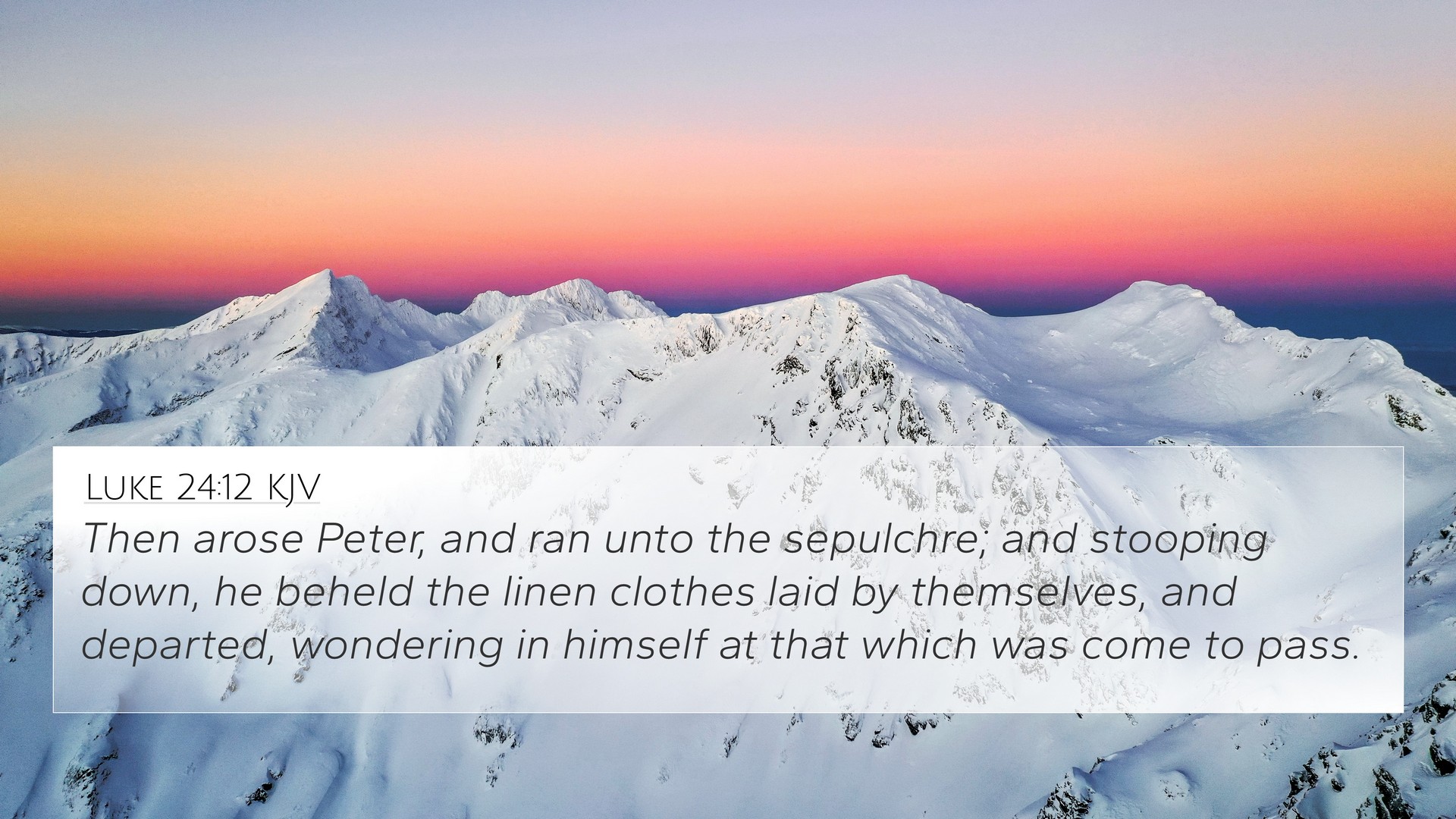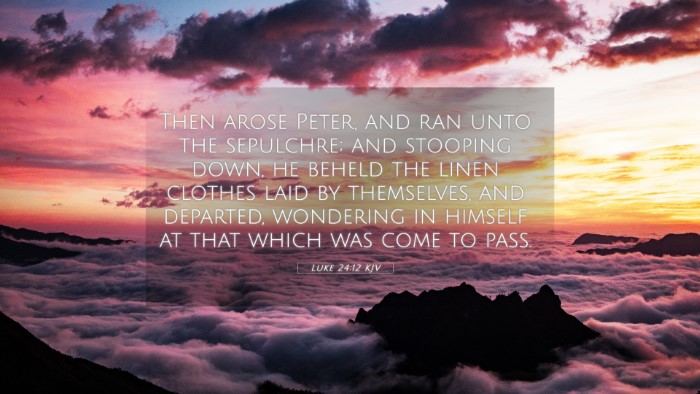Understanding Luke 24:12
Luke 24:12 states: “But Peter arose and ran to the sepulchre; and stooping down, he beheld the linen clothes laid by themselves, and departed, wondering in himself at that which was come to pass.” This verse marks a significant moment following the resurrection of Jesus, capturing a mix of confusion, wonder, and disbelief among the disciples.
Verse Analysis
This verse succinctly illustrates Peter's response to the news of Jesus’ resurrection. In analyzing this verse through various public domain commentaries, we can observe deeper meanings and connections.
Commentary Insights
- Matthew Henry: Henry emphasizes Peter's eagerness to confirm the report of resurrection, which shows both his hope and his uncertainty. He highlights the emotional turmoil faced by the disciples - a mixture of disbelief and desire for verification.
- Albert Barnes: Barnes points out that Peter's act of running signifies his zeal and longing to see the truth of the resurrection for himself. The empty tomb, with its linen clothes, represents a pivotal event that would solidify the faith of the early Christians.
- Adam Clarke: Clarke elaborates on the significance of the 'linen clothes' being laid by themselves, suggesting that the body of Jesus simply passed through them, indicating a miraculous occurrence rather than a typical burial. This reinforces the divine nature of the resurrection.
Thematic Connections
In this verse, we can also see important thematic connections to other Scriptures. Here are some noteworthy cross-references:
- John 20:3-7: This passage describes John and Peter running to the tomb, reinforcing the urgency and disbelief present in Luke 24:12.
- Mark 16:7: The angel's message to the women at the tomb points to the importance of Peter in the resurrection narrative.
- Matthew 28:7: Similar to Mark, it emphasizes the resurrection and the command to inform the disciples, particularly Peter.
- 1 Peter 1:3: Peter later reflects on the resurrection's significance in his epistle, showcasing his transformation from confusion to assurance.
- Luke 9:22: Jesus foretells his death and resurrection, setting the stage for this moment of realization for Peter.
- Isaiah 53:10: Prophecy about the suffering servant, tying in the necessity of the resurrection for fulfilling Scripture.
- Psalm 16:10: This passage affirms that God will not abandon the soul in Sheol, prefiguring the resurrection of Jesus.
Relevance of Cross-Referencing
Using tools for Bible cross-referencing can help deepen understanding of verses like Luke 24:12. By identifying connections between Old and New Testaments and examining thematic Bible verse connections, one gains comprehensive insights into scripture, supporting sermon preparation and personal study.
Cross-Referencing Methods
Engaging in cross-referencing Bible study involves methods like:
- Utilizing a Bible concordance to locate related verses.
- Implementing a cross-reference Bible study guide for thematic exploration.
- Making a comparative study of Gospels to understand varying perspectives.
- Exploring inter-Biblical dialogue between prophetic texts and their New Testament fulfillments.
Conclusion
Luke 24:12 serves not only as a narrative element in the resurrection account but also as a fertile ground for thematic exploration and cross-referencing. Through a comparative Bible verse analysis, believers can uncover rich insights into faith, doubt, and the transformative understanding of Christ's victory over death.



